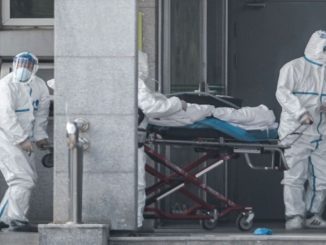
The latest government estimate shows that over 2,500 children have not yet been reunited with their parents and are waiting to be in the next two weeks, after being separated at the southern border by officials.
That number was revealed for the first time Friday as the government gave its first indications of how reunions of those thousands of parents and children could go. The more than 2,550 children eligible for those reunions are all aged 5 or older, the officials’ Friday court filing said, adding that the reunions of those children with their parents will occur in six to eight designated Immigration and Customs Enforcement facilities.
According to CNN, officials will use a new vetting process to ease reunions by the July 26 deadline ordered by a court ruling.
The Health and Human Services Department issued a statement following the filing in which it said the number could change as more is learned about the parents of those children and whether they are eligible to be reunited.
“This number represents the total possible cohort of minors who could potentially be subject to the court order, and, based on past experience, includes a significant number of minors who cannot or should not be reunified with the adults in question,” said HHS spokeswoman Evelyn Stauffer.
The government said these reunions will proceed differently from those of children under 5 and won’t include DNA-testing parents and background-checking every adult who will be living in the home with the reunified family.
However, officials didn’t fail to note their disagreement with the court-ordered provisions for the reunions, pointing out that when preparing for reunification for children under 5, their background checks raised some red flags, including adults who were found not to be parents and some criminal concerns.
“My opinion is that the court’s necessary truncating of the vetting process for class membership — including the suspension of critical information-gathering through mandatory completion of family reunification packets — materially increases the risk that HHS will reunify a child with a parent who will abuse them,” wrote Chris Meekins, the chief of staff at HHS’ office of preparedness and response.




Be the first to comment